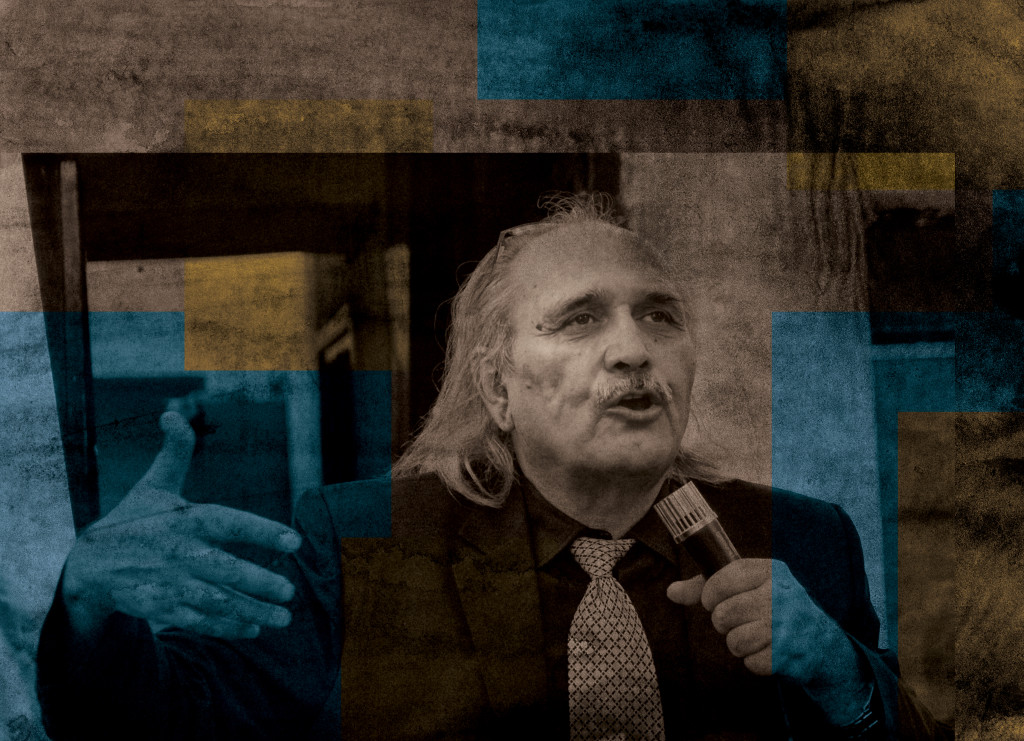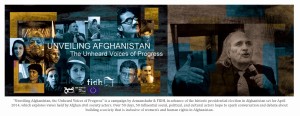Partaw Naderi is the one of the only Afghan poets whose work is widely translated into different languages. He writes frequently about democracy, human rights, particularly the rights of minorities, and the meaning of citizenship. Like many other artists and intellectuals of the time, Naderi was imprisoned in the infamous Pul-e-Chakri prison in Kabul for ‘anti-regime’ activities between 1984-1987, during the time of the Soviet-backed regime. He lived in exile in Pakistan for five years, working as a Dari reporter for the BBC World Service, and returned to Afghanistan in 2002. Through his poetry and his engagement with different civil society institutions, Naderi is a strong activist for democratic development and popular participation in Afghanistan.
What do you consider as an achievement in the current era?
In the past few decades, we in Afghanistan have witnessed numerous political upheavals. We have seen the period known as the “Democratic Decade” (1923-1973), largely under the kingship of King Zahir Shah. We have witnessed the civil war, the era of the Mujahideen (1992-1996). We have experienced the tyranny of the Taliban (1996-2001). In my opinion, the changes we have seen since the first Bonn conference in 2001 have, in comparison, been absolutely exquisite. To put it another way, Afghanistan has finally made her way into the modern world and set herself upon a path of democratic development. The fact that we can elect and chose our leaders is a great achievement in the history of our country. Even though our experience of elections so far has not always been fair or flawless, it has been a good place to start.
Of course, our democracy in Afghanistan is still far from perfect: many groups, including the mafia, have tried to use the system for their own benefit while suppressing the rights and liberties of others. We haven’t always been able to seize all of the opportunities that democracy has offered. But I do believe that building, reinforcing, and internalizing democracy is the only way forward for Afghanistan. Democracies deal with citizens, not ethnicities. We need to strengthen this idea of citizenship in Afghanistan.
Another great development of our time has been freedom of expression and particularly, freedom of the media. We have some high quality television networks, newspapers, and magazines. Of course, we cannot attribute all of these achievements to the government. As citizens, we have paid a high price for our freedoms: our journalists have been assassinated, beheaded, imprisoned, and forced into exile for the sake of our freedoms.
What do you fear?
The transition to democracy, and particularly the upcoming presidential elections, is a critical period for Afghanistan. There are some groups which are pressuring citizens not to vote in the elections. The future government’s legitimacy depends on holding fair elections with strong and representative popular participation.
What are the major challenges facing Afghanistan?
In Afghanistan, the level of political consciousness is low and people still vote based on their tribe, region, or ethnicity. There is not great awareness and understanding about the meaning of ‘citizenship’. This is a major challenge for us. Others are the general lack of security, and the absence of well-organized political parties and civil society organizations. All of these elements contribute to the building of a democracy.
Is it possible that girls could once again be banned from schools and women excluded from the social sphere? Afghanistan is so weak and fragile that any external factor could cause such a tragedy. But I do believe in the ability and awareness of our youth in Afghanistan to prevent this tragedy unfolding.
Which factors hinder women’s participation in social, economic, political and cultural arenas?
The tribal mentality is one of the biggest challenges confronting democracy in Afghanistan. In a democracy, the role that citizens play in choosing their representatives is essential. But men who are rooted in the tribal mentality, for example, might prohibit their young daughters from voting in the elections.
Lack of security is another issue which frustrates women’s participation, both at the elections and in the society in general. In fact, the simple lack of awareness amongst women about the importance of their rights as citizens is a significant concern for our nascent democracy.
What do women in Afghanistan demand?
Women’s greatest demand is their right to have access to modern education. For many different reasons, women have always had less access to education than men. There are, for example, fewer women in the higher education institutions and universities. The vast majority of women are illiterate. Education is everyone’s basic right.
Still, even amongst the educated women of Afghanistan, many women cannot choose their own partner. In some parts of Afghanistan, women continue to be sold in the name of tradition and customs.
The right to work is another important right which many women are deprived of in Afghanistan. They have no share in the chain of production; the economic system is structurally dominated by men.
Which social forces can women count on?
Civil society organizations working for women’s rights, and the Afghanistan Independent Human Rights Commission. The media plays an important role in promoting public awareness about women’s rights. But at the moment, all of these institutions are lingering in the realm of symbolism and clichés. I hope to see them rise above this and become genuinely effective and national institutions.
What do people need in order to realise a more prosperous Afghanistan?
The most important factor is the rights of the citizen. The meaning of being a citizen of Afghanistan is recorded in the Constitution: citizens should all be equal and have the same basic rights. However, unfortunately, in Afghanistan, identities continue to be defined on the basis of ethnicity, religion, language, region, and mafia relations.
“Unveiling Afghanistan, the Unheard Voices of Progress” is a campaign by Armanshahrand FIDH, which explores views held by Afghan civil society actors. Over 50 days, 50 influential social, political, and cultural actors hope to spark conversation and debate about building a society that is inclusive of women’s and human rights in Afghanistan.
Follow 50 interviews drawn from the “Unveiling Afghanistan campaign” daily on the Huffington Post.
Follow Unveiling Afghanistan on FIDH Twitter: www.twitter.com/fidh_en



